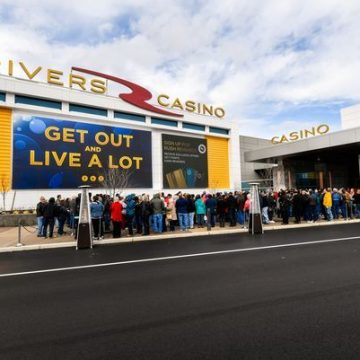
One of the states that has been considering passage of online poker and gaming regulations is New York. Before opening that Pandora’s Box, however, New York officials wanted to see how the new casinos that were licensed in the state performed. Those numbers are in and they aren’t very good, which could have some effect regarding online gaming and poker.
Back in 2013 (also the same point where the state started looking at online gaming), the state of New York approved four new casinos inside its borders. These new operations were to go along with the horse racing tracks and Indian casinos that opened for action in the 1990s. Four years later, those operations are almost all in operation and their revenues haven’t come close to the projected numbers.
In 2017, three of the new casinos – del Lago, Tioga Downs, and Rivers Casino & Resort – all offer table gaming, slots and poker and were expected to bring in almost $800 million in their first year of operation. The three new gaming locations in the state fell short of that mark, taking in less than $600 million between the three. The fourth operation, Resorts World Catskills, is expected to open in 2018.
Admittedly $600 million in taxation revenues is good for the state, but it isn’t what the folks in Albany were looking for. In fact, there is an investigation brewing in the New York General Assembly as to why the difference was so huge between the forecasts and the realities. The problem lies in whether the state might have to come up with a plan to subsidize the lack of revenue for the casinos.
There’s also the question of what the shortfall of the “brick and mortar” (B&M) casinos might do to the discussions regarding online gaming and poker. Since 2014, there has been some sort of online gaming bill introduced in the Senate (at the minimum) by State Senator John Bonacic. In the first couple of years, even Bonacic admitted that the only reason for the bill’s existence was to spark discussion in the legislature. It wasn’t until 2016 that some action was taken regarding the bill, receiving a hearing in a Senate committee.
In 2017, Bonacic’s labors began to pay off. The hearings in the Senate committees and discussion amongst his fellow Senators saw Bonacic’s bill, S3898, passed through the Senate by a sizeable 54-8 margin. The problem? The New York Assembly hasn’t been as forward-thinking as the Senate has been on the issue.
The sponsor of legislation in the Assembly, New York Representative Gary Pretlow, has put forth legislation that would match Bonacic’s in the Assembly, but he hasn’t been nearly as aggressive in pushing for the legislation. In fact, there have been no hearings at all for the House bill. At each point where Bonacic has been able to have some success, Pretlow has undercut the work and refused to even advance his legislation forward for a committee examination.
Pretlow is also one who is watching the stats from the B&M casinos very closely. If they continue to underperform, would he go forward with the investigations into the differences in the numbers? It is rumored that Pretlow may even go as far as to compare the overestimations of the B&M market onto the online arena, an “apples and oranges” comparison if there was ever one.
While the passage of legislation in Pennsylvania was supposed to open the doors on a flood of states passing online gaming and poker regulation, it is possible that it would have the opposite effect. States may want to wait and see how Pennsylvania, by far the largest state to pass online gaming and poker regulations with 12.7 million residents (compared to the three states that had previously passed online gaming and/or poker regulations Nevada, New Jersey, and Delaware’s 12.7 million combined). And it is still possible that anti-online forces can influence the drive for regulation. While Pennsylvania was a big “get” for pro-online gaming forces, there’s still plenty of work left to do.















